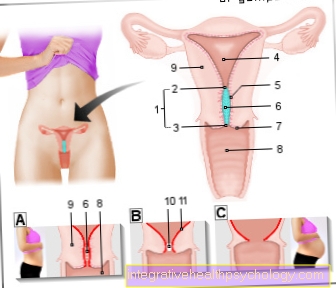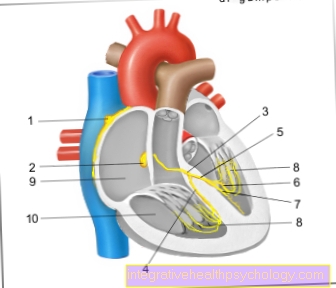Care for children and babies
What types of care are there for children and babies?
There are very different ways of childcare for small children, the typical ones are listed below.
-
Day nurseries: these are daycare facilities for children up to the age of three.
-
Kindergartens: in kindergartens, children between the ages of three and seven are usually looked after by educators in the mornings.
-
Day care centers: these are characterized by all-day care for children.
-
Day care: In a day care center, school-age children between the ages of seven and twelve are looked after after school.
-
Childminder: With a childminder, children up to three years of age are usually looked after by a single person in their premises.
-
Special educational day care centers: these serve to care for and support children with disabilities
-
All-day schools: these are schools where the child is looked after by teaching staff after midday.

Day care center (KITA)
The day care center, which is also just called KITA, is a collective term for various forms of care. In Germany, however, the term KITA is understood differently depending on the region.
It can be a day nursery in which children up to the age of three are looked after by educators, nannies and nurses. It can also be understood as a kindergarten which looks after children between the ages of three and seven. But it can also be a day care center, in which there are children between the ages of seven and twelve who are still looked after after elementary school and can do their homework.
In the classic sense, however, it describes a day-care center that takes care of the children all day by educators, for this reason the day-care center in Austria is also called a day-care center. However, parents do not have to take advantage of the full-day care offer, i.e. from morning to evening. There are also half-day places.
In most daycare centers, parents have to pay fees for their child, which are not uniformly regulated in Germany. This not only depends on the region in Germany, but also on the providers, which can be both private and public.
kindergarten
A kindergarten is an institution that looks after children who are usually between three and six years old. Increasingly, however, children under the age of three who are not yet dry are also being admitted in order to relieve working parents.
The children are brought to kindergarten by their parents in the morning and stay in the facility either until noon or until afternoon.
During the time in kindergarten, the children are in the care of educators, social pedagogues and other educational specialists. They organize the day with the children, for example by doing handicrafts, playing, eating, painting and going to the garden or the forest.
Accordingly, the kindergarten is the first level of the education system. The children get to know other children in kindergarten because they are in groups of up to 25 children and two carers.
There is no compulsory kindergarten in Germany, but parents are encouraged to send their child to kindergarten. The kindergartens are either subject to public sponsors such as municipalities, cities etc. or private sponsors, which are mostly church-based.
The costs for the kindergarten vary depending on the region and the provider in Germany and must in part be borne by the parents.
Are you interested in this topic? Read more information on this under: Kindergarten
Nanny
One possibility to have children or babies looked after is the childminder. Day mothers look after up to a maximum of five children in their own premises, i.e. usually at home or in rented rooms. For this reason, the childminder is usually much more flexible than a kindergarten.
The group size is much smaller than in a kindergarten, which is why the care is more personal and the childminder can cater to the needs of the children individually.
The childminder does a variety of activities with the children throughout the day, such as singing, playing, doing handicrafts, going to the park, etc. The children also stay with the childminders to eat and take a nap. As a rule, these are children from different families who are up to three years old.
The child minders require a care permit, which they receive from the responsible youth welfare office if they can provide proof of having passed a day care course. Furthermore, the child minders must present proof of a first aid course on the child in order to be able to work in this profession.
The childminder is paid by the parents of the children. In Germany most child minders are women; there are also men in this profession, but only a few.
You can read more detailed information on this topic under: Daycare or childminder - which form of care is right for my child? and childminder
Which shape is best for my child?
There are many different forms of childcare in Germany. When asked which is the best for the child, one should first look at childhood. As a result, many forms are out of the question from the outset, for example if you are looking for care for a four-year-old child, after-school care is not an option.
For smaller children there are different forms to choose from, the childminder, a kindergarten or a daycare center. Which form is best for the child depends heavily on how flexible and for how long the parents have to accommodate their children.
As a rule, the decision depends more on the parents than on the child. In addition, various childcare options must also be available in the vicinity. If so, each facility should be visited.
Before the visit, the parents should be clear about which aspects are particularly relevant for their child and, regardless of the individual form of childcare, pay attention to whether these wishes are fulfilled in the facility or not.
Recommendations from the editorial team
Further general information on this topic:
- Children's crib
- Montessori kindergarten
- Educational assistance - what is it?










.jpg)


















